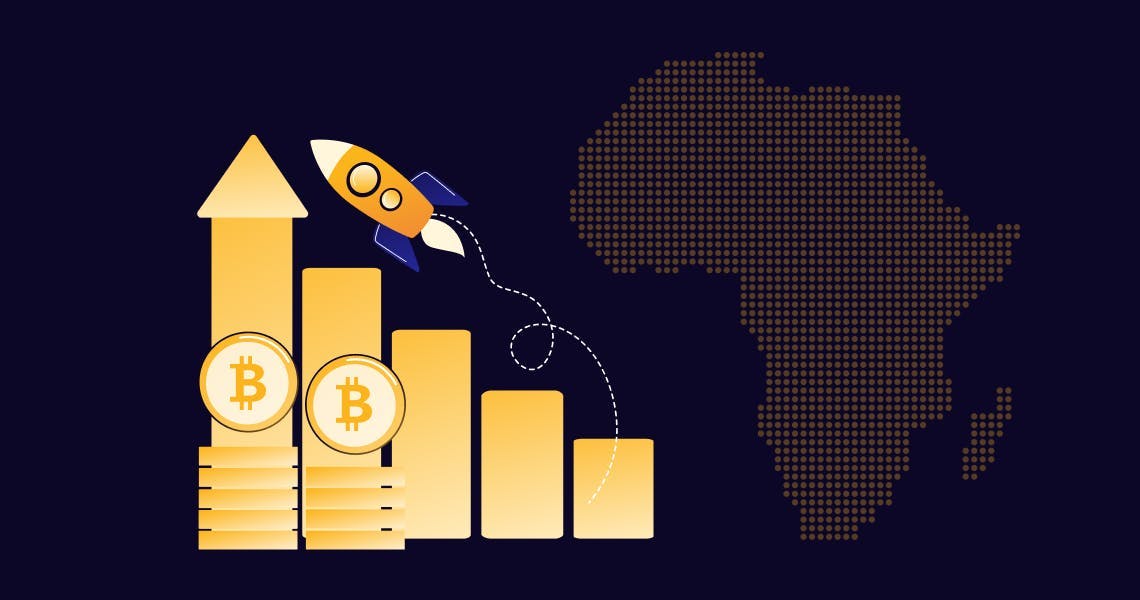Crypto Scoop: Crypto Forecasts Soar Amidst Major Market Developments
Crypto Scoop
Back to blog
Yellow Card
2024-06-14
Crypto Scoop
On this page
Price prediction, adoption, key development to top cryptocurrencies, and more are included in this edition of the crypto scoop.
This week, the crypto space records notable predictions, strategic moves, and major regulatory updates. In this edition of the Crypto Scoop, we explore:
- Price predictions for top cryptocurrencies
- Cardano’s milestone update
- Solana’s expansion and security update
- Global crypto adoption initiatives
- Memecoins predictions and more.

Price Moves and Predictions For Top Cryptocurrencies
This week, the cryptocurrency market was abuzz with significant developments. Bitcoin traded at $66,800 and Ethereum at $3,500, setting the stage for bold predictions and strategic moves in the industry. VanEck, a prominent asset manager, forecasted that Ethereum could reach $22,000 by 2030. Their comprehensive analysis highlighted Ethereum’s potential to revolutionise traditional finance and tech sectors, emphasising its robust user base and significant economic activity. Bitwise also excitedly reported that the convergence of crypto and artificial intelligence could add $20 trillion to global GDP by 2030, highlighting the synergy between Bitcoin mining and AI applications.
Billionaire investor Bill Miller IV called Bitcoin “significantly undervalued,” predicting a transformative shift in global capital governance. His endorsement aligns with recent data from Farside, showing that eight of the top 30 publicly traded Bitcoin miners have market capitalisations exceeding $1 billion, led by Marathon Digital Holdings at $5.5 billion. Standard Chartered predicted that Bitcoin could reach $100,000 pre-election and possibly $150,000 if former President Donald Trump wins due to his perceived crypto-friendly stance.
MicroStrategy announced plans to sell $500 million in convertible senior notes to fund additional Bitcoin acquisitions, reinforcing its commitment to BTC as a treasury reserve asset. This move underscores the growing institutional interest in Bitcoin.
Tether CEO Paolo Ardoino emphasised Bitcoin’s uniqueness as the only truly decentralised cryptocurrency governed solely by mathematics. Ardoino emphasised that Bitcoin’s governance is ruled exclusively by mathematics, unlike other cryptocurrencies that frequently change their monetary policies. He noted that Bitcoin remains unique among over 14,000 cryptocurrencies because it is not subject to changes by any group of developers.
U.S. Securities and Exchange Commission (SEC) Chair Gary Gensler suggested that the regulator could approve spot Ether ETFs within three months. This comes after the SEC considered applications from several asset managers, including ProShares, which recently proposed a rule change to list its Ethereum ETF on the NYSE Arca.
Meanwhile, Consensys CEO Joseph Lubin, an Ethereum co-founder, described crypto as the “hardest thing” in software history, citing its complexity and potential threats. Lubin stressed the need for industry professionals to develop better implementations to overcome these challenges, emphasising the importance of security and resilience in the rapidly evolving crypto space.
Cardano to Achieve Historic Milestone: Full Decentralisation and Advanced Governance
Cardano, the open-source blockchain platform, is poised to achieve its most significant milestone since its inception by becoming a fully decentralised network with an advanced governance system.
Cardano founder Charles Hoskinson announced that Cardano Node will reach version 9.0 this month, marking the beginning of a new development era known as Voltaire. This transition will occur through the implementation of the Chang fork, which is named in honour of Phil Chang, an early leader in Cardano governance who passed away in 2022.
The Chang fork will integrate the technical capabilities of CIP-1694’s on-chain governance into the mainnet, paving the way for Cardano's advanced governance system. This upgrade requires 70% of its stake pool operators (SPOs) to install the new node before the network undergoes a hard fork to fully transition into the Voltaire era.
Once the Voltaire era is launched, Cardano will boast a governance system with annual budgets, a treasury, and active input from community members. Hoskinson emphasised that this development will transform Cardano into a decentralised civilisation with millions of participants worldwide, highlighting the network's commitment to decentralised governance and community-driven decision-making.
Solana Cracks Down on Validator Sandwich Attacks and Expands with Circle’s Web3 Integration
The Solana blockchain has recently been at the centre of significant developments in terms of its security measures and its integration with new Web3 features. The Solana Foundation has taken a firm stance against malicious activities within its network by removing a group of validator operators involved in sandwich attacks from its delegation program. Sandwich attacks, a form of front-running, occur when a malicious trader places one order before a transaction and another immediately after, ensuring that retail traders receive the worst possible price while the attacker profits from the manipulated price difference.
These validators were identified through their participation in mempools, which facilitate such attacks. Solana’s validator relations lead, Tim Garcia, announced on Discord that operators engaging in these malicious activities, including participating in private mempools for sandwich attacks, will not be tolerated. Consequently, any validator found engaging in such behaviour will be permanently removed from the delegation program, and any stake from the Foundation will be withdrawn.
In addition to tightening security, Solana is also expanding its capabilities through a new integration with Circle. On June 12, Circle announced it would roll out support for the Solana blockchain across its Web3 services in two phases.
The first phase will introduce programmable wallets and a gas station feature to Solana. Programmable wallets will allow developers to automatically manage assets based on predefined rules, while the gas station feature will enable sponsored transaction fees. This means tasks that typically require manual execution, such as executing transactions when specific conditions are met, can now be automated. The second phase will extend support to non-fungible tokens (NFTs) and program interactions through Circle’s Smart Contract Platform. This integration will align Solana with other blockchains supported by Circle’s Web3 services, including Ethereum, Polygon, and Avalanche.

Global Crypto Adoption: Key Developments and Regulatory Moves
This week has seen significant strides in cryptocurrency adoption and regulation across the globe. Ripple has strengthened its collaboration with the Republic of Georgia, working with the National Bank of Georgia (NBG) to explore ways to digitise the local economy. Anatoly Aksakov, Chairman of the Russian State Duma’s Financial Markets Committee, predicted that central bank digital currencies (CBDCs) will become the norm for international payments within the next five years. He revealed that Russia could start using the digital ruble for international transactions as soon as the second half of 2025 during remarks at the St. Petersburg International Economic Forum (SPIEF).
In a significant move towards self-regulation, Taiwan has established the Taiwan Virtual Asset Service Provider Association, consisting of 24 crypto firms registered with the Financial Supervisory Commission for anti-money laundering compliance. Chaired by Titan Cheng, founder and CEO of BitoPro, the association aims to develop self-regulatory guidelines to ensure healthy industry development and consumer protection. Meanwhile, the Zimbabwean government is developing a regulatory framework for the country's cryptocurrency industry and has called for domestic and international input from crypto service providers. The government aims to create regulations tailored to Zimbabwe’s specific needs, with a committee set to gather information and a deadline for comments on June 26.
Meanwhile, South Korea’s Financial Services Commission (FSC) has issued guidelines stating that nonfungible tokens (NFTs) that are mass-produced, divisible, and can be used as payment will be regulated as virtual assets. This decision aligns NFTs with existing cryptocurrency regulations, enabling them to receive interest when deposited to exchanges.
In the United States, former President Donald Trump has intensified his cryptocurrency advocacy as part of his 2024 presidential campaign. At a fundraising event in San Francisco, Trump declared his intention to become the "crypto president" and reiterated his support for pushing the industry forward. This aligns with the broader American crypto advocacy movement, which has seen 'Stand With Crypto' surpass one million active supporters. Coinbase CEO Brian Armstrong highlighted this milestone, noting the growing momentum for pro-crypto policies in America.
Memecoins Spark Conversations and Predictions in the Crypto World
Galaxy Digital CEO Michael Novogratz has hailed memecoins as the "most powerful narratives out there," describing them as a cornerstone of the cryptocurrency industry. In a post on X, Novogratz emphasised the potential fortunes to be made in memecoin investing, citing his son-in-law's success with coins like Dogecoin and Dogwifhat. However, it was noted that this enthusiastic view is not universally shared. Critics often dismiss memecoins as "silly casino chips," questioning their long-term value and utility.
Despite the scepticism, memecoins have gained traction among celebrities and influencers. Late in May, Australian model and rapper Iggy Azalea announced her own cryptocurrency, dubbed MOTHER. The token quickly rallied to an all-time high of around $0.27, reaching a market capitalisation of nearly $300 million. However, the market cap has since fallen to around $150 million.
Following Azalea, controversial internet personality Andrew Tate also entered the memecoin space, launching a token named RNT. This new edition has rapidly gained attention within the Solana community, amassing a market capitalisation of approximately $50 million shortly after its debut.
The increasing popularity of memecoins has not gone unnoticed by institutional investors. BitMEX co-founder Arthur Hayes predicted that Dogecoin, one of the most well-known memecoins, would eventually secure its own ETF. During an interview with Real Vision CEO Raoul Pal, Hayes suggested that Dogecoin's simplicity and widespread recognition make it an attractive option for new crypto investors. He believes that as the Federal Reserve and US Treasury continue to print money, the market for memecoins will only grow crazier.
Hayes argues that memecoins offer an accessible entry point for newcomers to the crypto space. "I don’t need to understand blockchain, AI, crypto, and cryptography," he said, highlighting the straightforward appeal of these digital assets.
Terraform Labs and Do Kwon Agree to $4.5 Billion Settlement with SEC
Terraform Labs and its former CEO, Do Kwon, have agreed to pay the U.S. Securities and Exchange Commission (SEC) $4.5 billion in disgorgement, prejudgment interest, and civil penalties. This settlement, which is pending approval by a New York judge, would also ban Kwon and Terraform Labs from buying or selling any crypto asset securities.
The agreement comes after a New York jury found Kwon and Terraform Labs liable for civil fraud in connection with the $40 billion collapse of the Terra ecosystem in May 2022. Kwon, currently in custody in Montenegro and awaiting a decision on his extradition to either the U.S. or South Korea to face criminal charges, was not present for the trial.
Lawyers for the SEC stated that the proposed judgment would serve as a strong deterrent against misconduct in the crypto industry. The SEC and representatives for Terraform Labs declined to comment further on the settlement.
Disclaimer: This article is for information purposes only and should not be construed as legal, tax, investment or financial advice. Nothing contained in this article constitutes a solicitation, recommendation, endorsement or offer by Yellow Card to buy or sell any digital asset. There is risk involved in investing or transacting in digital assets, please seek professional advice if you require one. We do not assume any responsibility or liability for any loss or damage you may incur dealing with digital assets. For more information on Digital Asset Risk Disclosure please see - Risk Disclosure.


